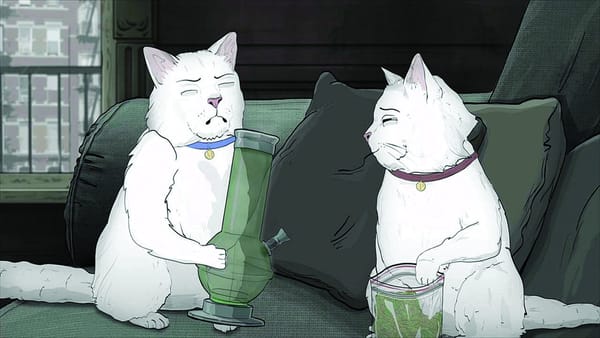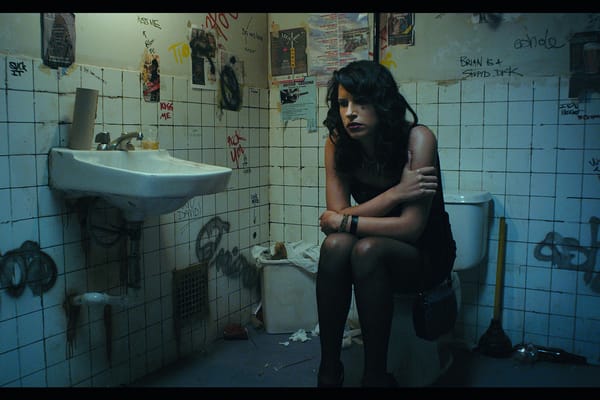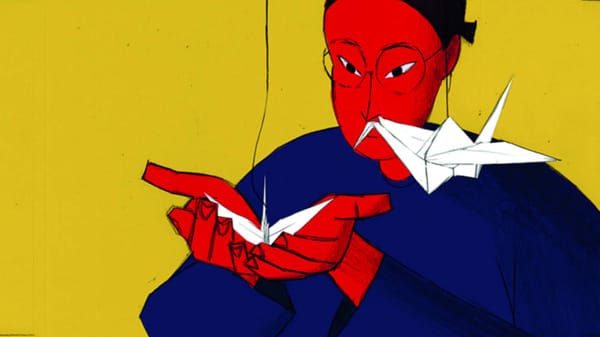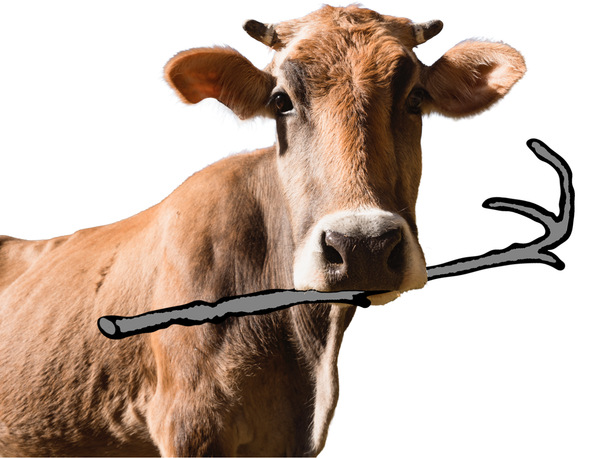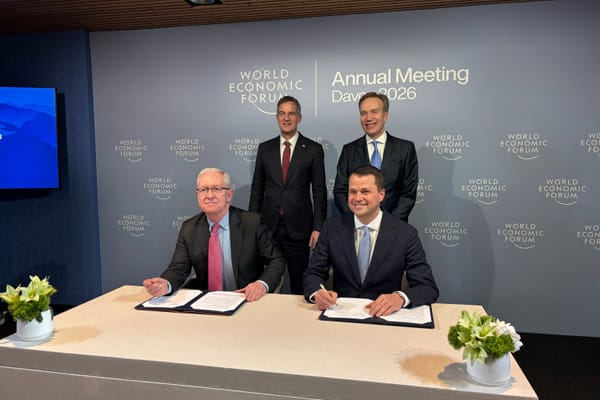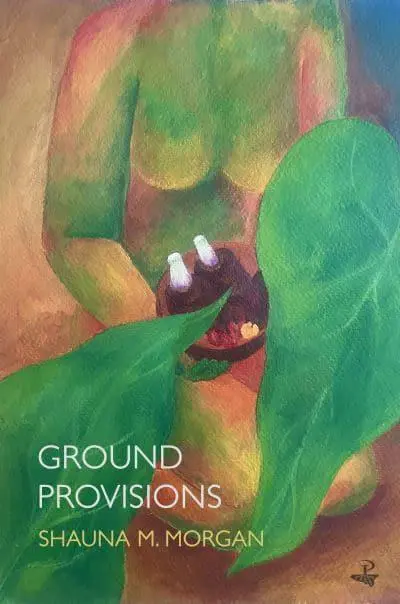Peace, Love, and Death Metal | Nos Amis
In HBO’s latest documentary film we follow the Eagles of Death Metal as they return to Paris following the attack on the Bataclan.

Colin Hanks’ directorial debut, Nos Amis, is a powerful albeit atypical music documentary. Opting to focus on the humanity of its subjects far more than their music, this HBO production follows the band Eagles of Death Metal as they attempt to recover from their ordeal at the Bataclan. An impactful cold open shows us the beginnings of the concert as the energy and life seen juxtaposes with the foregone conclusion already simmering in the viewer’s mind. But the footage ends abruptly, long before the tragedy would occur. The spectre of dread this evokes, however, hangs over the rest of the feature.
The piece is measured with its pacing, spending the first third of its runtime laying the building up our central subjects. At its core, this is a story about two best friends, and their almost extraordinarily clichéd friendship. We focus, initially, on the shared adolescence of Queens of the Stone Age frontman Josh Homme, and Eagles of Death Metal frontman Jesse Hughes. We hear about the beginnings of their friendship and the ‘fucking John Hughes cliché’ that was the first time they really got to know each other. In their own words, Jesse and Josh share this story with us. Jesse, a stereotypical square is being bullied at a high school party; forced into the pool and not allowed to come out. Josh, lumbering Viking that he is, walks into the party and comes to his rescue. Exploration of the incident sets up the major themes of the documentary: guilt and responsibility. In this case, Jesse’s feeling of guilt for not standing up for himself and fighting back, and Josh’s growing feelings of responsibility towards Jesse.
In fact, these frank, honest, and intimate interviews with the pair form the emotional backbone of the piece and really help keep the audience’s interest. For obvious reasons, more focus is given to Jesse, with his retelling of his childhood and early adulthood painting a picture of a man who has always struggled to fit in, frequently broken by circumstance. Many observers, myself included, have expressed discomfort with some of Jesse’s statements. But for a man that’s already so haphazardly put together to take such a shattering blow?
Well, it’s incredibly hard not to give him a free pass. It doesn’t help that, as with many outspoken artists these days who are aren’t the best at expressing themselves, detractors are ready to bastardise and amplify certain statements over others. Hanks, at least, goes to great pains to portray Hughes sympathetically whilst still not shying away from addressing Jesse’s more controversial statements. Homme too shows a vulnerability here that, outside of his music, we don’t see much of.
Following the story of the formation of the Eagles of Death Metal, which again highlights the responsibility Homme takes for Hughes, we move onto the events of the Bataclan. These are the documentary’s most harrowing and tense moments, as we hear retellings of the night from those who were there. Spliced in with interviews from the band are interviews from members of the concert’s audience, together with actual footage from it. The result is a frantic and sobering immersion in the brutality of the attack. This equalisation of performer and patron ties into the piece’s title of ‘nos amis’; ‘our friends’.
It codifies what Jesse talks about throughout, the fact that they were all in this together and consequently how he feels responsibility for it. We also alternate between Josh’s and Jesse’s stories of the night; Jesse as he struggles to escape, and Josh as he finds out about the incident and tries desperately to do something about it. As these parallel odysseys unfold, each party’s feelings of guilt over the night become clear. Whilst Hughes experiences survivor’s guilt, Homme feels guilt over not having been there to watch over Jesse, as he always has before. That this man and this band, who have made fun and simplicity their vocation, must know find themselves in the midst of such complexity and tragedy, is unfortunate.
There’s plenty of star power to be found here, as the documentary even manages to get an appearance from Bono. It goes without saying that the feature has a kick-ass soundtrack, sampling not only EoDM’s three albums, but also QotSA’s extensive discography. This is, undoubtedly one of the most poignant and well-crafted documentaries of the year. While fans will of course enjoy it, the wider audience may actually gain more out of it; getting to see for themselves the larger-than-life people we already know Josh and Jesse to be.



